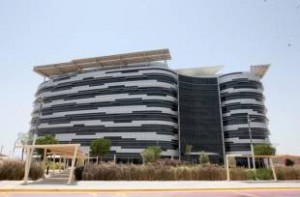The UAE’s Journey Towards Clean Energy
ABU DHABI, Jan 29 (IPS) - (WAM) - The discovery of hydrocarbon reserves brought tremendous prosperity for the UAE and made it a central player in the global energy market. With one of the highest gross domestic product per capita levels in the world, the UAE has generally used its wealth wisely to stimulate sustainable economic growth. However, volatility in oil markets, growing unrest across the region and the growing threat of climate change has concentrated minds on the need for immediate and decisive action.
 Credit: Gulf News archiveThe UAE has long recognised that environmental responsibility and economic diversification are essential for a better, more sustainable future. As the first country in the region to set renewable energy targets and as home to the International Renewable Energy Agency (Irena), Masdar City and the Mohammad Bin Rashid Al Maktoum Solar Park, the shift towards cleaner energy sources and reduced carbon emissions is evident.
Credit: Gulf News archiveThe UAE has long recognised that environmental responsibility and economic diversification are essential for a better, more sustainable future. As the first country in the region to set renewable energy targets and as home to the International Renewable Energy Agency (Irena), Masdar City and the Mohammad Bin Rashid Al Maktoum Solar Park, the shift towards cleaner energy sources and reduced carbon emissions is evident.
Ahead of last month's COP21 summit in Paris, the UAE government pledged to increase clean energy's share of the national energy mix to 24 per cent by 2021. This is a pivotal step towards making the UAE a global centre of renewable energy innovation. With more than 300 days of abundant sunshine every year, increasing solar's share of the UAE energy mix should be attainable. Hydrocarbons that are not burnt to generate electricity can be used for other, higher value-adding purposes, or sold to increase the gross national income. Clean energy could also reduce the long-term social costs the government will face as adverse environmental and health effects could be minimised — or even eradicated.
The UAE should be proud of its clean energy leadership role. Abu Dhabi's renewable energy agency Masdar was a key sponsor of Solar Impulse, the flying laboratory full of clean technologies that represents 12 years of research and development. Solar Impulse generated tremendous global excitement when it attempted the first round-the-world solar flight to demonstrate how a pioneering spirit and clean technologies can change the world.
The Zayed Future Energy Prize — which represents the environmental stewardship vision of the late Shaikh Zayed Bin Sultan Al Nahyan — celebrates impactful, innovative and long-term achievements in renewable energy and sustainability. It reflects the UAE's commitment to finding solutions that meet the challenges of climate change, energy security and the environment. The 2016 winners were announced on January 19 and ranged from SOS HG Shaikh Secondary School, a school for 300 students three hours from Somaliland's capital, Hargeisa, to BYD, the largest rechargeable battery supplier and new energy vehicle manufacturer, based in Shenzhen. A lifetime achievement award to Dr Gro Harlem Brundtland recognised her many achievements and accomplishments, included being a guiding force behind the "Brundtland Report" on sustainability over 25 years ago.
The UAE, like many other developed and developing countries, faces a number of clean energy and carbon emission issues. In a reflection of its growing economy, there is an increasing number of vehicles on our roads, leading to increasing fuel usage and higher carbon dioxide, carbon monoxide and nitrous oxide levels. Electricity demand from individuals, industries and commercial buildings — which are major consumers of electricity — is high and the UAE has a significant carbon footprint. Competitively priced oil, gas and energy prices, while driving economic growth in some traditional industries, is undermining renewable energy and stifling growth in what could be a key sector of the country's future economy.
The recent adoption of the Paris agreement was a historic moment. COP21 was an unprecedented international climate deal and presents both risks and opportunities for businesses who have an important role in terms of emissions reductions and investments to help governments achieve the goals.
As countries start reforming their economies based on their COP21 commitments, we should see the global economy evolving to a lower carbon model. Companies will be required to be more open and transparent about the financial, environmental and social risks and opportunities that they face from climate change.
Investment in clean technology should grow dramatically — governments are expected to double their clean-tech research and development budgets and the private sector is likely to increase its involvement and investment. The role of the private sector, in fact, is key to the sustainability agenda — because of its central role in the development of the global economy. The increase in the private sector's rate of triple bottom-line reporting — which focuses on social and environmental as well as economic costs and benefits — will be a key marker of the likely success, or failure, of the COP21 programme.
(End)
© Inter Press Service (2016) — All Rights Reserved. Original source: Inter Press Service
 Global Issues
Global Issues